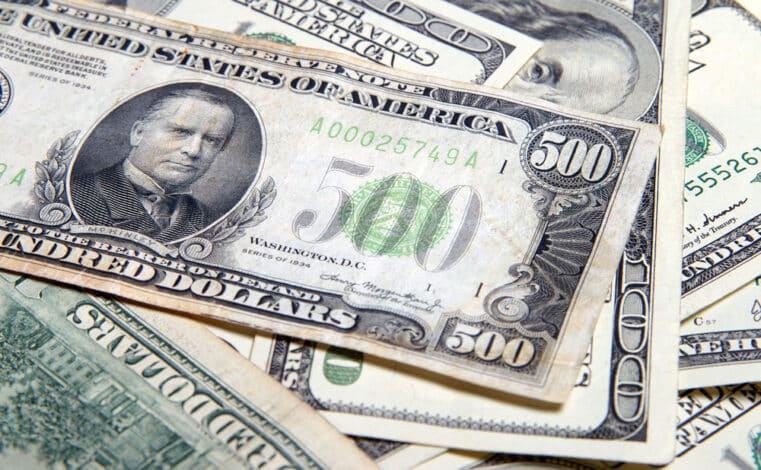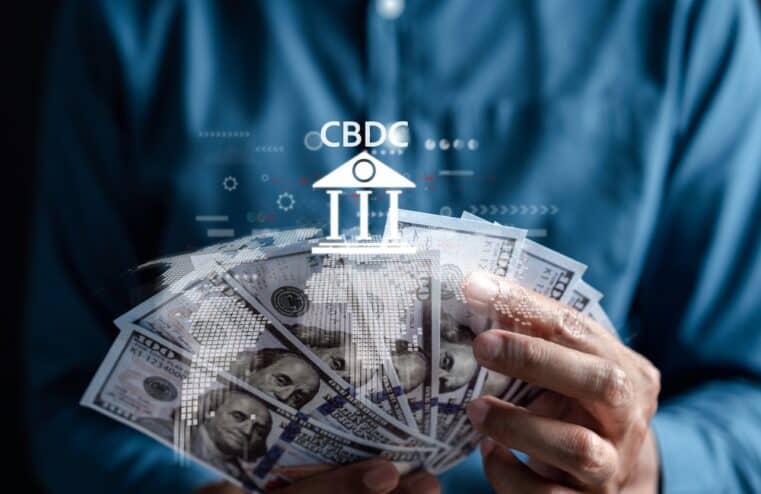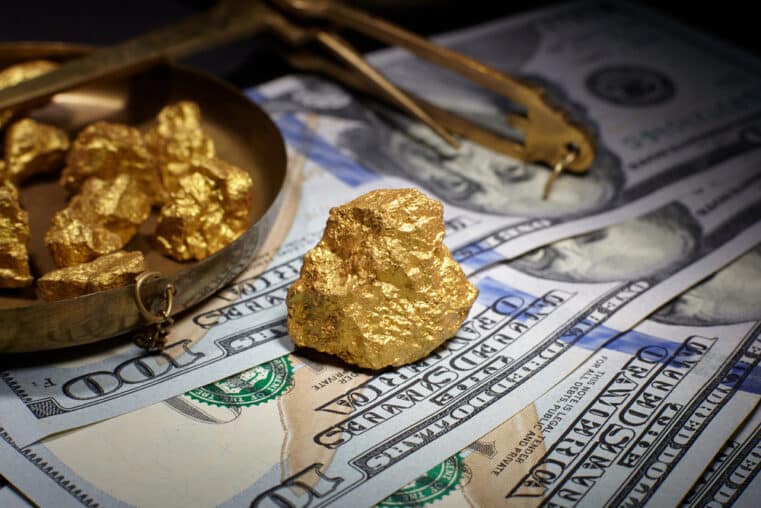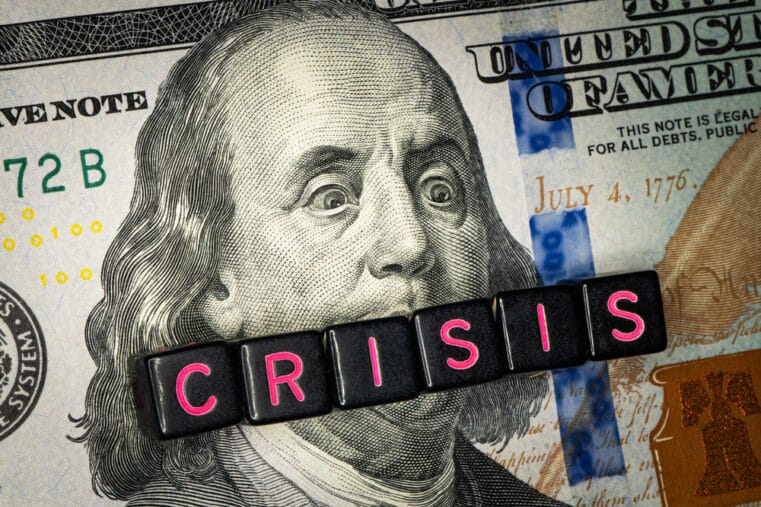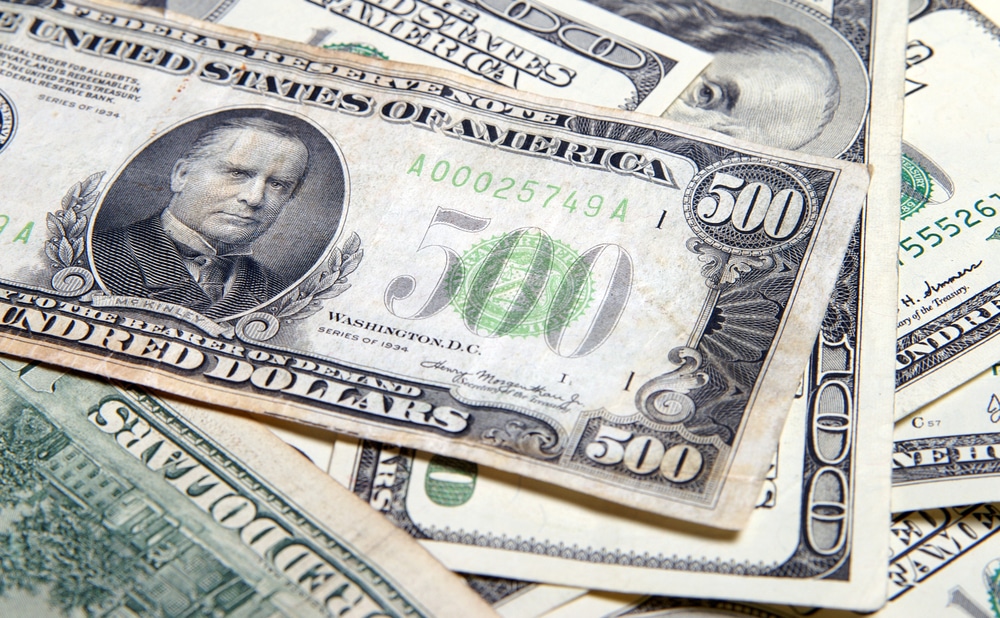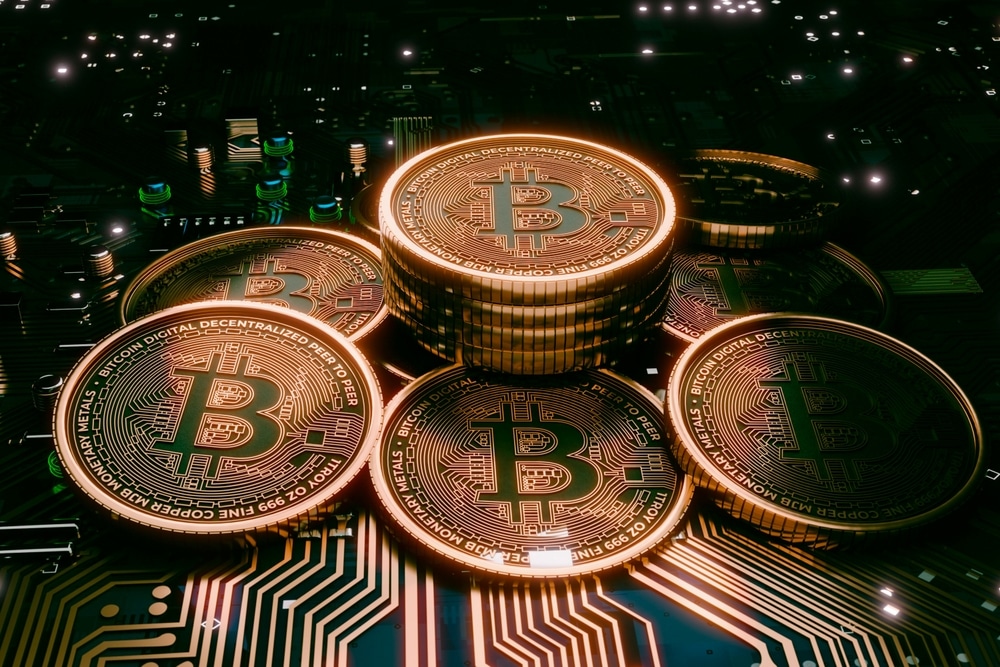
The US Dollar Now Symbolizes the Death of American Freedom
There was a time when the consumer was considered sovereign and the dollar helped actualize the freedom that came with that sovereignty.
The American individual had the choice to save, spend, and invest with cash that was not subject to the schemes and manipulations of governing institutions. And cash was the means by which individuals can express their needs and demands in the marketplace. The dollar symbolized freedom and stability.
In the 19th century, during the Jacksonian era, there existed a different “war on cash.” It was a war on banks issuing notes that were not backed by gold, notes that not only represented everything that can go wrong with a fractional reserve system, but notes that effectively debased the value of the currencies being issued. Just listen to the slogans that rang loud and clear in 1834:
“Gold before Rags!”
“No Union of Banks and State!”
“No Monopolies!”
The war on cash in the Jacksonian era was a war for sound money. But nowadays, things have changed.
Gold no longer plays a role in limiting central banks and governments from manipulating the monetary system. Gold is no longer held in reserve, as it has been replaced with banknotes. Gold and silver coins are no longer in circulation as a common means for exchange. What the central governing bodies deem “sound money”--the dollar--is a currency that only they can issue, manipulate, monitor and control...but only up to a certain point.
Cash is still a nuisance to central government. Cash isn’t easy to track or monitor, making it difficult to counter illegal uses of cash (namely, money used for criminal or terrorist activities). So government is waging a “new war on cash,” in which the goal is to eliminate the use of physical cash altogether.
Although the US dollar still symbolizes freedom for many people across the globe, its symbolism is strictly historical... in its current state, the dollar represents how that freedom died.
The new war on cash comes at the cost of privacy and freedom. Individual citizens will be caught in the crossfire of this war, with central governments and banks positioned to benefit from any misfortunes this war may cause. Not only are cash and cash-based transactions becoming digitized at an accelerated pace and massive scale, gold and silver products (see CUSIP list) too are being co-opted into this corrupt system. Money is to be tracked, monitored, and subject to the manipulation and CONTROL by its sole issuer.
Monopoly? That’s an understatement. Doesn’t this model smack of tyranny...if only in the monetary sense? But herein lies the rub: monetary matters are inextricably linked to the exercise of individual (and transactional) freedom.
Fortunately, no State power is infinite or absolute.
The resistance to the war on cash comes in old and new forms. The older form, of course, is represented by gold and silver--what for centuries had been (and still is) considered “hard money.” If central bank interventions were to one day collapse the value of cash, “physical” gold and silver would prevail.
But there’s also an emerging force on the horizon: alternative digital currencies, better known as cryptocurrencies.
A threat to central banks and governments, the digital currency world has transformed into a battleground.
Bitcoin alone has a market capitalization equivalent to the total market cap of 99 of its competing cryptocurrencies. If bitcoin were a “nation,” its capitalization would place it among the top 50 nations of the world.
But what powers bitcoin and many of its competing cryptocurrencies, making their digital tokens reliable, is a technology called “blockchain” . It is through the use of blockchain technology that nations and central banks can declare yet another war, this time on digital cash, by creating their own national digital currency. That process has begun in Dubai and the UK (both currencies backed by gold), China, Russia, and potentially the US.
There’s an irony to all of this: central bank’s and government’s attempt to fully control money (digital or physical) may only result in their own weakening.
If people no longer considered cash to be a viable investment or means of exchange, then alternatives will pop up:
- We saw this in India, where the war on cash ruined the lives of many poor and destroyed numerous small business in the process. This war only boosted bitcoin and digital wallet.
- The creation of over 100 cryptocurrencies since the 2008 crisis also attests to this natural
- The large and ever increasing gold imports to China--a massive demand encompassing both its citizens and central government--also reveals a growing lack of faith in the power of paper cash (for citizens, the yuan, and for the Chinese government, the US dollar).
The real value of money is to be found in the transactional freedom that it allows individuals to exercise. Hence, the war on cash is a war against your capacity to exercise this freedom.
And to reclaim it, you will need to move beyond the boundaries of the corrupt system and hold sound assets (e.g. gold and silver) that possess real value; assets that can resist the bureaucratic tampering of governments and central banks.




